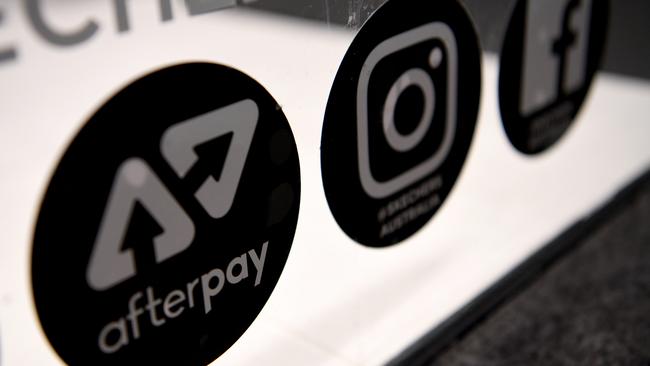Afterpay vows to defend US class action, as regulatory risks grow
Afterpay is shrugging off a US class action lodged against the buy now pay later group, as concerns rise about whether the sector will start to get caught in regulatory nets.

Afterpay is shrugging off a US class action against the buy now pay later group by labelling it “without merit”, as concerns rise about whether the sector will start to get caught in regulatory nets.
The class action brought by two law firms on behalf of Springfield, Missouri-based Brooke Miller and 100 users of the buy now pay later service, was submitted to the California Northern District Court.
An initial case management conference is scheduled for September with parties accusing Afterpay of “misrepresentations and omissions” in marketing materials about the operation of the instalment service, and unfairly targeting “young and poor consumers and those struggling to make ends meet”.
“Afterpay’s marketing never warns consumers of the extreme and crushing NSF (non-sufficient funds) and overdraft fee risk of using the service,” the legal documents allege. “Afterpay conceals from users the punishing risk of NSF and overdraft fees on small dollar Afterpay repayments.”
An Afterpay spokeswoman said while the company had not been served with a class action claim, based on public documents it believed the complaint was “without merit”.
“If served, the claim will be vigorously defended. The allegations relate to fees charged by a consumer’s banking institution - not Afterpay,” she added.
“Our terms and conditions state that individuals must have sufficient funds in their account to meet their repayments. We also remind our customers regularly to ensure they have sufficient funds.”
The spokeswoman also noted if an Afterpay customer missed a repayment, their account was suspended until the payment was made.
But the legal action comes at a crucial time for Afterpay in North America, as it considers listing on a US exchange to reflect its growth ambitions in that market.
Last year, Afterpay was forced to Afterpay did not have the relevant licence, with the refunds relating to late fees paid before the company received a licence in November 2019.
McLean Roche Consulting’s Grant Halverson, a former Citibank and Diners Club executive, said Afterpay’s decision not to draw on customer credit scores left it vulnerable to legal and regulatory action.
“This (class action) is the early shot leading to regulation,” he added, noting the importance of Afterpay’s US growth plans to its overall strategy.
“The Aussie’s need to make the US their winner.”
In Britain, it was announced in February the buy now pay later sector would be regulated by the Financial Conduct Authority.
Jefferies analysts conducted a deep dive into the buy now pay later sector late last month and said while there was scope for growth, regulatory risks should not be underestimated.
“In Australia, design and distribution obligations will apply to most products that ASIC (Australian Securities and Investments Commission) regulates in October 2021, meaning ASIC will have a product intervention power including BNPL if it is found to be detrimental,” they said.
“To be clear, we believe that Afterpay and Zip adhere to the spirit of responsible lending, but other small BNPL players may give the industry a bad name and Afterpay and Zip may get caught in the regulatory trap.”
Jefferies noted positive growth prospects given low rates of Australian and US e-commerce penetration, but highlighted the market had attracted a spate of new entrants including PayPal and Commonwealth Bank.
The analysts lowered their expected revenue margin for Afterpay and Zip and cut both price targets by about 20 per cent. Jefferies still has a “buy” rating on Afterpay and the price target has reduced to $124.83. The stock closed at $97.20 on Tuesday.
Macquarie analysts this month pointed out Afterpay continues to overwhelmingly dominate local app store downloads of buy now, pay later services, giving it 66 per market share in Australia.
In the US, Afterpay remains the top player in the buy now, pay later app store by the number of aggregate ratings, but the company has continued to see slower momentum than its peers.



